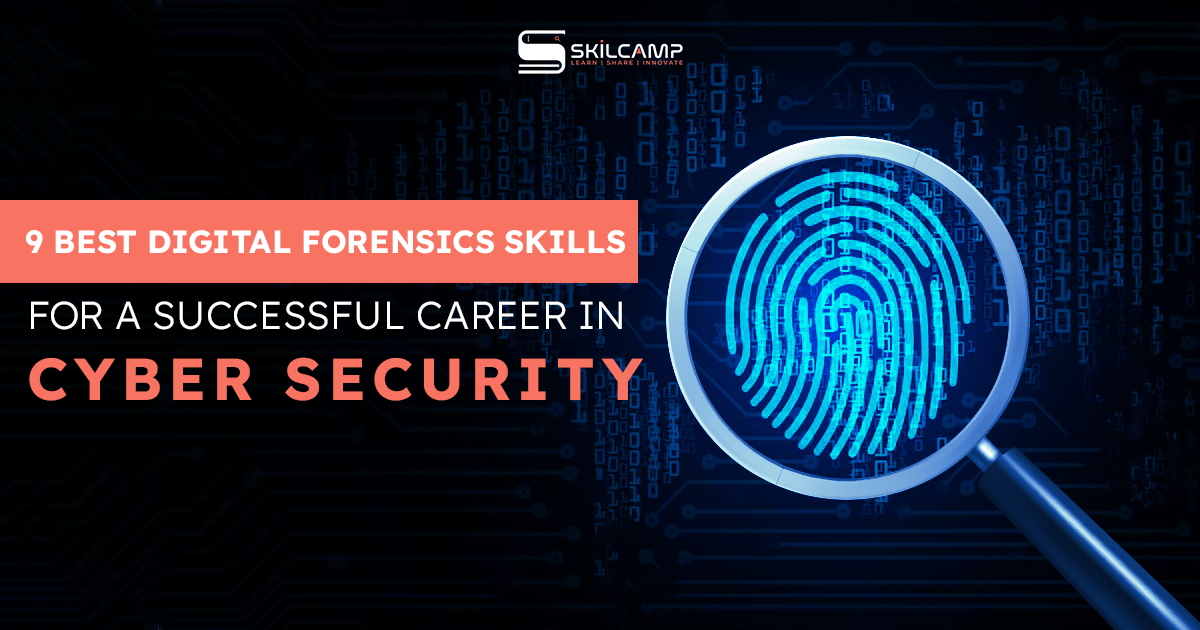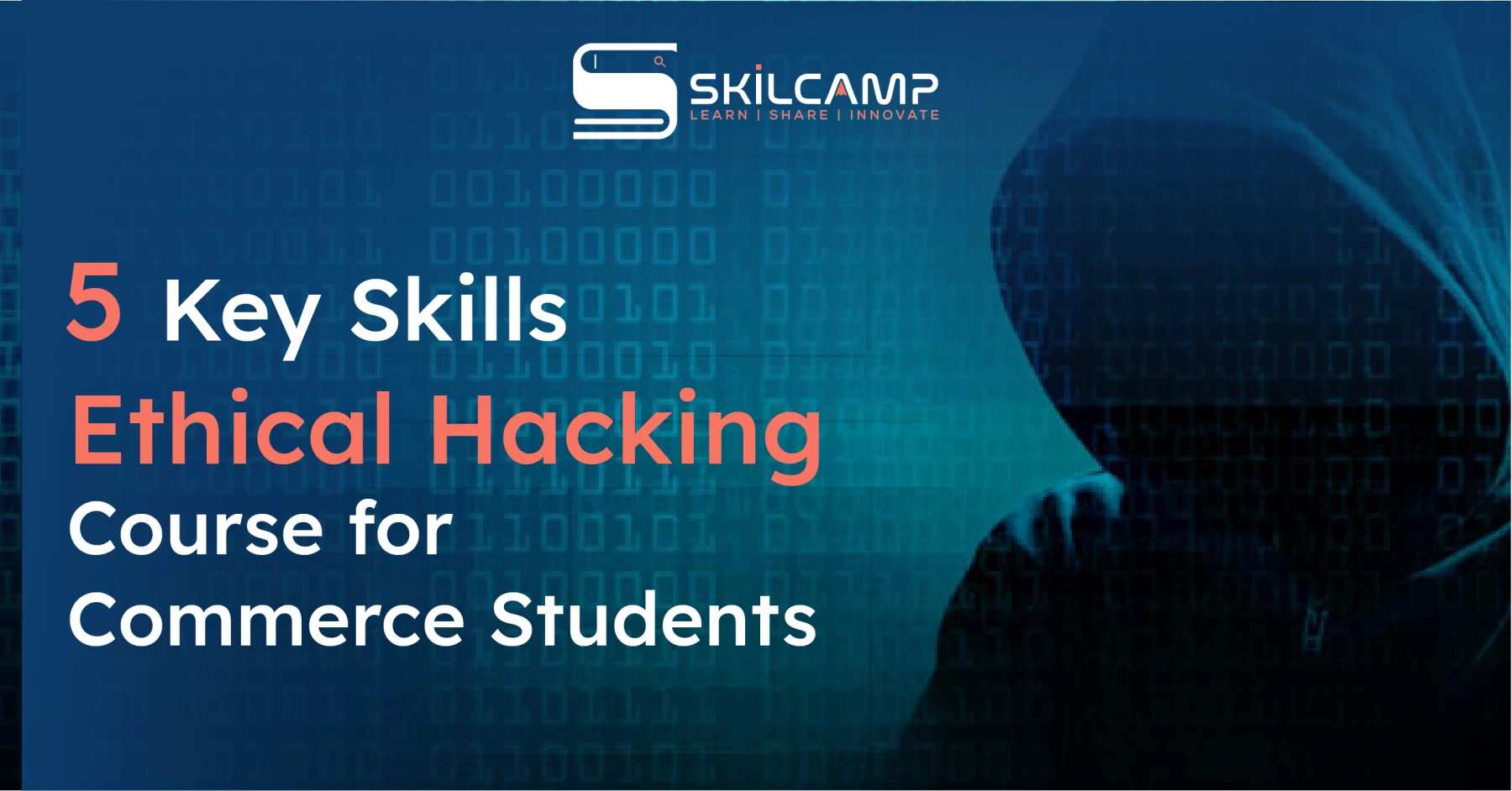Table of Contents
Identification, preservation, analysis, and presentation of digital evidence are the core activities of digital forensics, also known as computer forensics. It arose in response to the proliferation of cybercrime and the accelerating development of technology. Many industries throughout the world rely heavily on digital forensics, including law enforcement, corporations, emergency response teams, and lawyers.
When it comes to investigating cybercrime and security breaches, having access to information stored on digital devices like computers, cell phones, and networks is invaluable. It’s useful for tracking down criminals, deducing attack strategies, and amassing evidence for court.
Several businesses focus only on offering services and products related to digital forensics course. These firms staff highly trained experts with extensive experience in gathering, analyzing, and reporting digital evidence.
To succeed in the field of digital forensics, you need to have a solid foundation in both theory and practice. Experts in this subject often come from a computing, cybersecurity, or forensics discipline. Data recovery, virus analysis, network forensics, and legal processes involving digital evidence are just some of the areas of competence they develop.
Aspects of Digital Forensics and Its Growth in India
As cybercrime and security breaches have become more common in India and the globe, the field of digital forensics has become increasingly popular there. Computer forensics, mobile forensics, network forensics, database forensics, and legal forensics are just a few of the many domains into which digital forensics may be applied.
– Computer forensics
Investigations into crimes committed on digital devices like computers and laptops often make use of computer forensics in India. Digital evidence from these devices must be collected and analyzed to provide important information and establish a chain of custody.
– Mobile forensics
The increasing prevalence of smartphones and their use in illegal operations have made mobile forensics an essential field of study. Data from mobile devices, such as communications, app activity, and location, are the primary focus of this research.
– Network forensics
Investigation and analysis of network-based cybercrimes rely heavily on network forensics. Understanding the nature of an attack and determining who is responsible requires collecting network data, analysing logs, and reconstructing events.
– Database forensics
Database forensics is used to look into cases of hacking, data breaches, and manipulation of databases. Checking logs, databases, and other points of control for irregular behavior is part of this process.
– Legal forensics
Forensic law is the use of digital forensics to present evidence obtained from digital sources in a legal setting. Digital evidence must be stored and analyzed in accordance with forensic standards to guarantee its legitimacy and admissibility in court.
Initiatives like India’s National E-Governance Plan (NeGP) have helped advance the country’s use of digital forensics. The primary goal of NeGP is to facilitate digital transformation across industries by making government services available electronically to people. Expertise in digital forensics is in high demand due to the growing number of cybercrimes that are being committed on digital platforms.
Skills required for digital forensics in cyber security
In order to improve cybersecurity, shield vital infrastructure, and guarantee a risk-free online experience for all users, India must embrace digital forensics. In the field of cybersecurity, digital forensics requires the following set of skills:
1. Detected Intrusions
Digital forensics experts should be familiar with various intrusion detection methods. They need to be able to spot telltale signals of hacking, deconstruct incursion efforts, and assess the level of damage. A thorough understanding of IDS and IPS is essential for identifying and reacting to possible security breaches.
2. Expertise with various frameworks and controllers
Experts in digital forensics must have a firm grasp of security rules and frameworks. ISO 27001, the NIST Cybersecurity Framework, and the CIS Controls are just a few examples of industry standards that you should be familiar with. Professionals may evaluate the security of systems, spot flaws, and guarantee adherence to standards with the aid of these frameworks.
3. Measures to Ensure a Secure Network
Experts in digital forensics must be well-versed in network security procedures. They should be familiar with the inner workings of routers, firewalls, and other network protection tools. In order to identify and investigate network-based cyber events, it is helpful to have knowledge of network traffic analysis, packet sniffing, and log analysis.
4. Awareness of several dangers
Experts in digital forensics need to be aware of new cyber dangers and attack methods. A good understanding of malware, ransomware, phishing, and social engineering are all part of this. In order to conduct a successful digital forensic investigation, it is essential to have a firm grasp of the nature, behaviour, and detection techniques of these threats.
5. In-depth familiarity with DevOps
The use of DevOps techniques is on the rise in today’s complex cybersecurity environment. Experts in digital forensics should be fluent with DevOps’s ideas, methods, and technology. By doing so, they may ensure safe software development, deployment, and incident response by incorporating digital forensics into DevOps processes.
Additional Skills That Are More Inclined Towards Building A Better Working Environment
6. Controlling Dangers
Digital forensics experts need a solid understanding of risk management principles. Risks connected with gathering and analysing digital evidence must be evaluated and counteracted accordingly. Making educated judgements and successfully managing risks requires an appreciation of the legal and ethical issues, as well as the possible consequences, of forensic activities.
7. Collaboration
Because of the interdisciplinary nature of digital forensics, teamwork is essential. To work effectively with others in the field, as well as with law enforcement, legal professionals, and other interested parties, they must have excellent interpersonal and communication skills. Collaborative abilities provide effective communication, cooperation, and coordination during probes.
8. Analytical Reasoning
Analytical and critical thinking skills are essential in the field of digital forensics. All professionals need the ability to think critically, evaluate facts, and make sound inferences. The ability to think critically is essential for conducting efficient investigations and making sound decisions by revealing hidden connections, irregularities, and patterns.
9. Keeping abreast of new rules and practises
Experts in digital forensics companies need to keep tabs on new laws and rules passed at the federal level. This involves knowing the rules and regulations regarding the storage and disclosure of digital evidence. Professionals can better assure compliance and protect the reliability of investigations if they keep up with the ever-changing regulatory landscape.
In the field of cybersecurity, digital forensics course calls for a wide range of expertise. Professionals in this field must have in-depth knowledge of threats, intrusion detection, network security policies, and DevOps. Effective digital forensic investigations and safer workplaces are the result of cultivating skills like risk management, cooperation, critical thinking, and keeping up with legislative changes. The cybersecurity industry and the discipline of digital forensics are both rapidly developing, making lifelong learning and professional growth necessities.
Recommended Reading : Career in Digital Forensics
How to grow in the digital forensics domain?
Here are some suggestions for developing your career in digital forensics:
– Enroll in professional classes that offer flexibility to learn at your pace
Improve your abilities by enrolling in a recognised online digital forensics course at your own speed. Research programmes that provide training in computer forensics, mobile forensics, network forensics, and forensic analysis tools, among other facets of digital forensics. These classes often include practical exercises and real-world case studies to help you hone your newly acquired knowledge and abilities.
– Practice
Participate in digital forensics projects to hone your skills. Create a lab where you may test out forensic equipment, examine digital evidence, and work through fictitious cases. You may improve your ability to respond to a variety of situations and develop your technical abilities via repeated practice.
– Get involved with workshops
Participate in events devoted to digital forensics in Cyber Security such as seminars and conferences. These gatherings provide excellent chances to hear from thought leaders, catch up on developments in the area, and make new connections among peers. Participating in a workshop is a great way to meet like-minded professionals and receive hands-on experience in your field of choice.
– Never stop learning
Stay updated in digital forensics by reading blogs, research papers, and forums. Participate in webinars and online training, and explore various Online e-learning platforms for courses and certifications.
You may improve your digital forensics knowledge and abilities by following these guidelines. Keep in mind that gaining real-world experience, continuing your education, and maintaining connections within the digital forensics community are all crucial to your success as a professional. Take on tough projects, look for ways to learn from experts in the subject, and publish your findings to further your education and career.
Conclusion
With the ability to examine and analyse digital evidence in many different fields, digital forensics is an essential part of cybersecurity. It takes a diverse set of abilities to succeed in this industry. Professional development in the field of digital forensics in Cyber Security requires a commitment to lifelong learning and hands-on experience. Individuals may improve their abilities and keep up with the rapidly developing field by selecting self-paced courses, putting their knowledge to the test in a lab setting, attending seminars, and adopting a lifelong learning mentality.
FAQs
Where does digital forensics fit into the larger context of cyberspace?
By researching and analysing digital data, digital forensics plays a significant role in cybersecurity by identifying cyber risks, gathering evidence for legal actions, and uncovering the modus operandi of hackers.
What are some essential skills for digital forensics?
Intrusion detection, control and framework expertise, network security control knowledge, threat awareness, DevOps understanding, risk management, teamwork, critical thinking, and regulatory awareness are all important skills for digital forensics in cybersecurity.
In digital forensics, how can I advance my career?
Choose self-paced courses, practice in a lab setting, attend seminars and keep studying to further your career in digital forensics. If you want to improve your abilities and opportunities in the area of digital forensics, it’s important to keep up with industry developments, get advanced certifications, and participate in the digital forensics community.




Leave a Reply